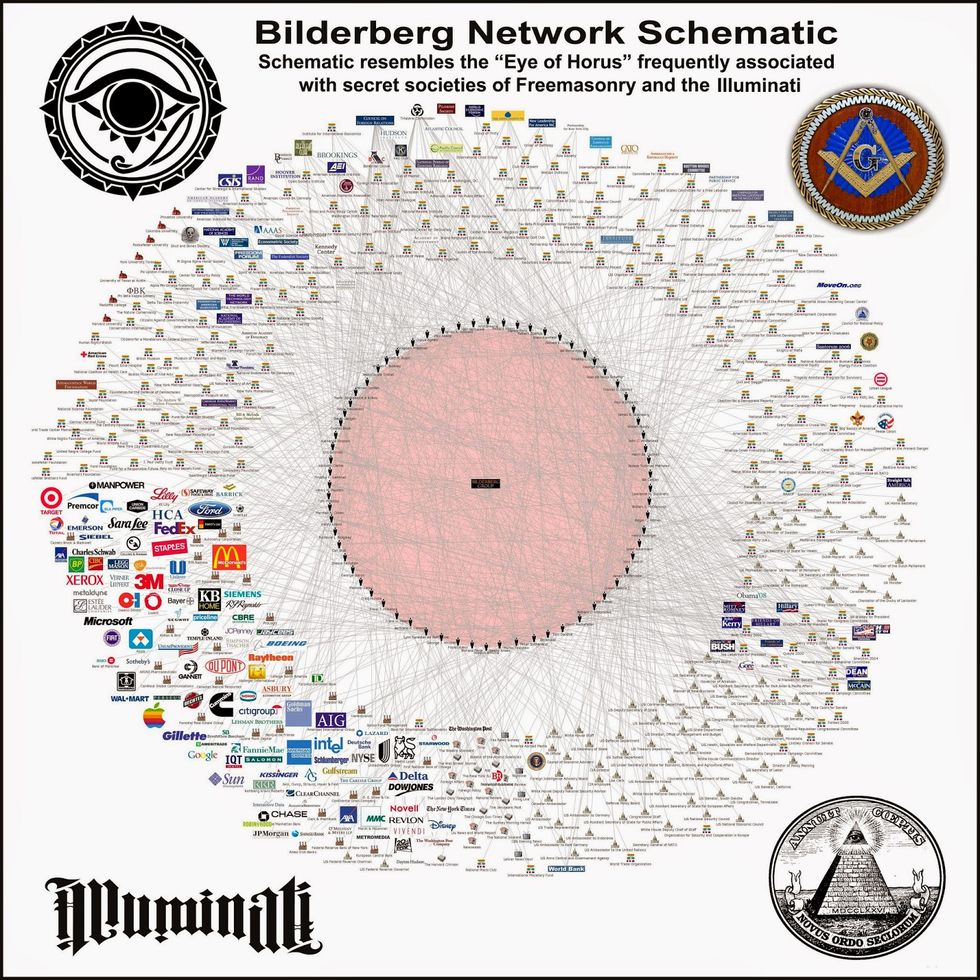The little-known Bilderberg Group was founded by Prince Bernhard of Lippe-Biesterfeld in 1954. Józef Retinger, an advocate of this group initiated its first area of interest in the development of atlanticism in the hopes of enhancing the relationship between the United States and Western Europe as a result of increasing international hostilities during the Cold War.
Today, the organization consists of approximately 120-150 individuals spanning from corporate businesses, media companies, academic institutions, finance associations, militaries, and politicians from around the globe who come together once a year to discuss change in international policy through private conferences. However despite it's annual meetings, the group continues to function year-round.
Members of the Bilderberg Group are said to have direct relation to some of the most influential businesses in the world including Apple, IBM, McDonald's, and The Walt Disney Company.
Of these individuals include U.S. dignitaries: Bill Gates, Chairman of Microsoft; Chris Hughes, Co-founder of Facebook; David Rockefeller Sr., former Chairman of Chase Manhattan Bank; Eric Schmidt, CEO of Google; George Stephanopoulos, ABC News Chief Washington Correspondent; John Bezos, Founder and CEO of Amazon; Hillary Clinton, former First Lady and U.S. Secretary of State; and former presidents: Bill Clinton, George H.W. Bush, and Gerald Ford.
Conspiracy theorists have long speculated the group's involvement with supposed secret societies such as Freemasonry and the Illuminati. Despite these claims, corporate businesses appear to be at the root of the Bilderberg Group's source of power. While these meetings continue to happen annually, little information about what is discussed is ever released to the public. Naturally, the reasoning for developing such theories can be discerned due to the withholding of potentially crucial information.
The most recent Bilderberg meeting was held on June 1 in Chantilly, Virginia. The meeting was promised to administer a progress report for President Trump and discuss U.S. relations with Russia and China. However, it is questionable as to why the opinions of the corporate elite matter in foreign policy. The answer appears to lie presumably in maintaining fiscal allies. In other words, the aiding and abetting of favorable policy change through political bribery.
The question should not be whether to allow the continuance of the Bilderberg Group. Realistically, we can not control civil meetings of other countries and the withdrawal of U.S. representatives in this group would undoubtedly be consequential.
The issue we should be analyzing is the reason for secrecy. It is difficult if not impossible to blindly conform to a group with such political influence. Because the people do not vote for trusted candidates to serve as their country's Bilderberg members, their views can not be properly represented. The need to maintain a certain level of confidentiality regarding specific federal and international activity can be understood, however without transparency, there is no way to honor a "government of the people, by the people" making it respectively a "corporatocracy" of the businesses, by the businesses.




















